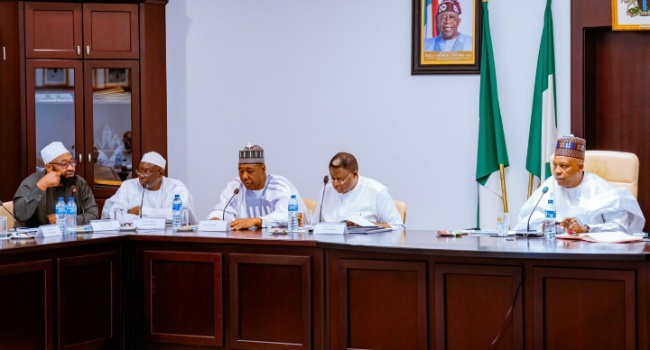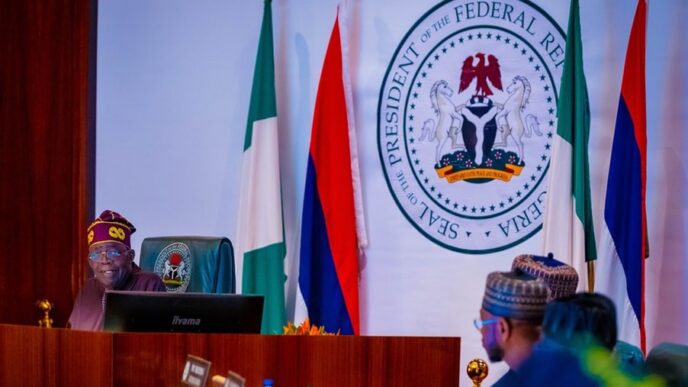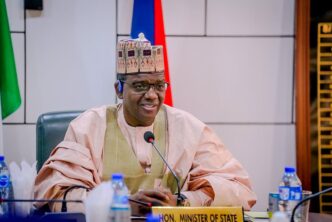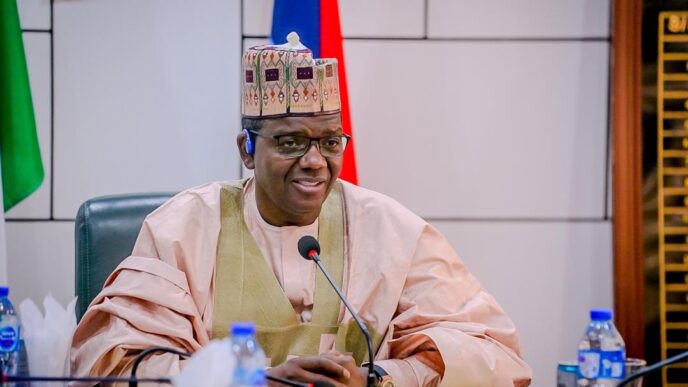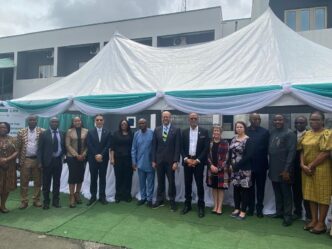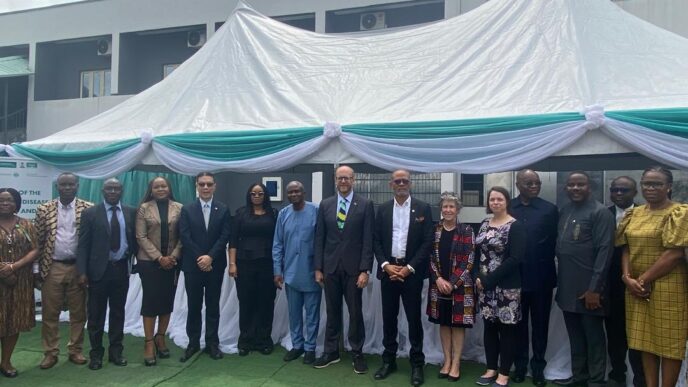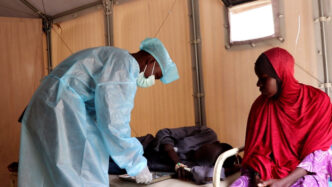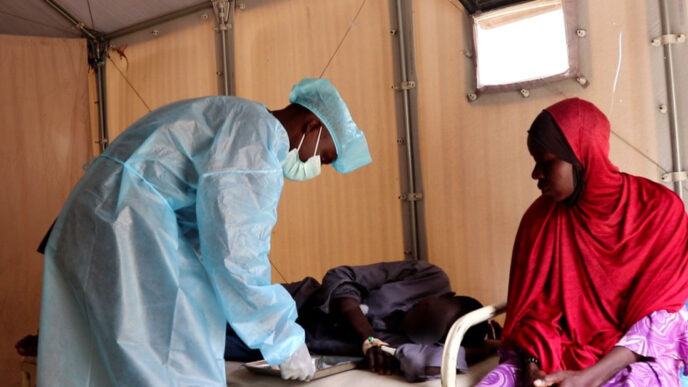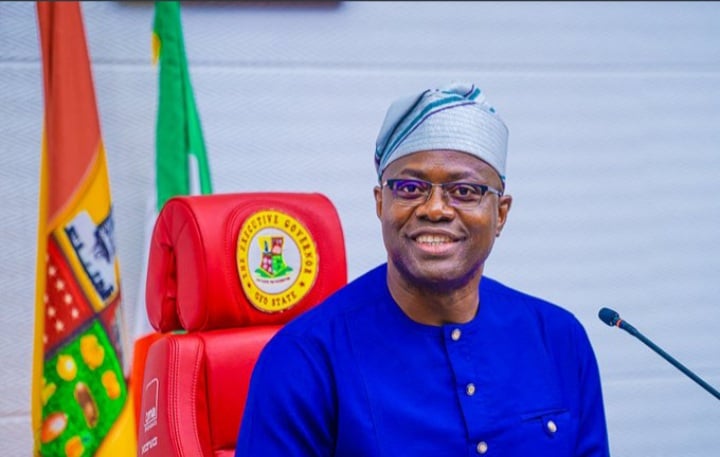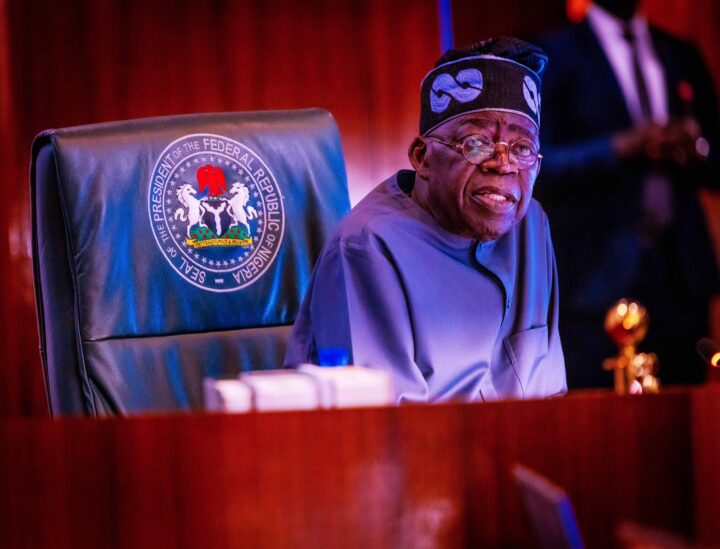Vice-President Kashim Shettima has inaugurated the presidential food systems coordination unit (PFSCU) to address food insecurity in the country.
According to a statement on Friday issued by Stanley Nkwocha, senior special assistant to the president on media and communications, this initiative is part of efforts by President Bola Tinubu’s administration to tackle hunger and hardship in Nigeria.
Shettima said the presidency engaged the states, development partners, and other critical stakeholders in the ongoing efforts to address the soaring prices of commodities and general food insecurity in the country.
“This followed a presentation by the Technical Assistant to the President on Agriculture, Office of the Vice President, Marion Moon,” Shettima said.
Advertisement
Addressing members of the group comprising governors, ministers and representatives of development partners, the vice-president said the nation is facing a rare food security crisis and “the sooner we come to terms with the reality, the better”.
“Food insecurity endangers the very basis of our democratic experiment, and this is why all hands have to be on deck. We are in a food security crisis, but it also provides us the opportunity to re-engineer and reposition the nation on a firmer footing,” he said.
Shettima said the unit is not created to usurp the functions of the ministry of agriculture, adding that the urgency and seriousness of the matter at hand require the ideas and resources of all stakeholders.
Advertisement
Also, he said the green imperative programme, a government-catalysed, private sector-driven, agricultural industrialisation programme, is one of the key projects that the PFSCU must activate and implement.
The vice-president said with improved farming practices, improved seeds, and the use of fertilisers, Nigeria’s agricultural productivity could be turned around for the better.
STATE GOVERNORS OUTLINE PLANS TO MODERNISE FARMING PRACTICES
State governors in the committee outlined plans to modernise farming practices, increase crop yields, and transform Nigeria into a self-sufficient food producer.
Advertisement
Bassey Otu, governor of Cross River state, said the state aims to contribute to feeding the nation, adding that his government must modernise agriculture to feed the population.
Babagana Zulum, governor of Borno state, emphasised the need for a coordinated approach, citing low productivity and population growth as a major challenge to Nigeria’s food security drive.
Zulum called for investment in commercial agriculture, improved funding, and enhanced security for farmers.
Umar Namadi, Jigawa state governor, highlighted the state’s potential to achieve food security.
Advertisement
“All that is needed is the political will to drive the process. Our lands are very fertile. In Jigawa, there are places where we are yielding ten tonnes per hectare of rice,” Namadi said.
“There are so many places like that. As of today, our average in Jigawa State is about 12.56 per hectare. We are on the right course. What we need is sustained political will.”
Advertisement
In his remarks, Mohammed Bago, Niger state governor, suggested that his state be used as a pilot for the president’s food security initiative.
Bago said the state has invested over N100 billion in agricultural mechanisation, with 5,000 tractors and twenty pilot irrigation systems available.
Advertisement
He called for support from the government, World Bank, and other development partners to ensure the success of these initiatives.
Also speaking, Patricia Obila, deputy governor of Ebonyi state, emphasised the need for tractor mechanisation to ensure year-round production and leverage youth participation by incentivising agriculture with farm settlements equipped with essential social amenities.
Advertisement
On his part, Dominique Kouacou, country representative of the Food and Agricultural Organisation (FAO), who spoke on behalf of a group of donors, affirmed their commitment to supporting the government’s efforts to address food insecurity in Nigeria.
Kouacou said the president and vice-president’s enthusiasm in addressing challenges in the agricultural sector is commendable and has reawakened the commitment of donors in the sector, assuring their full support for the government’s initiatives.
Also present at the meeting were Abubakar Kyari, minister of agriculture and food security; Aliyu Sabi Abdullahi, minister of state for agriculture and food security; Maifata Aminu Mu’azu, national president of the association of local governments of Nigeria (ALGON); and Muhammed Abu Ibrahim, executive secretary of National Agricultural Development Fund (NADF).
Others include Omoboyede Olusanya, managing director/CEO of Flour Mills of Nigeria; Rasheed Sarunmi, managing director of SaroAfrica; Vinay Vutukuru, programme Leader, Sustainable Development, Nigeria at World Bank, and Manievel Emmanuel Sene, World Bank’s senior agriculture economist, among others.
